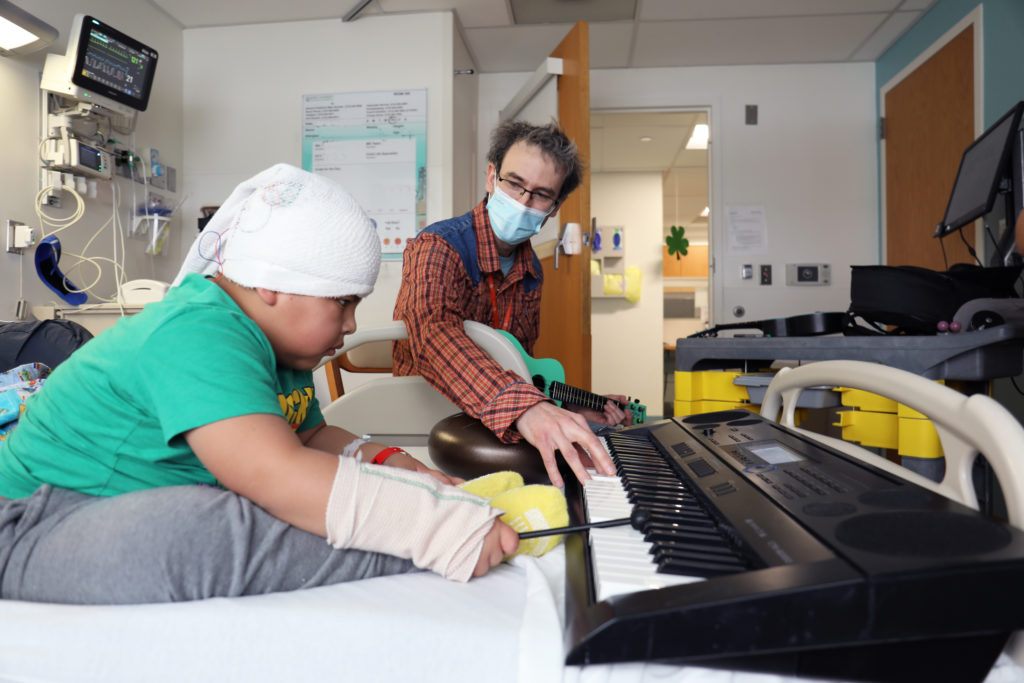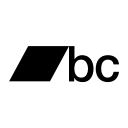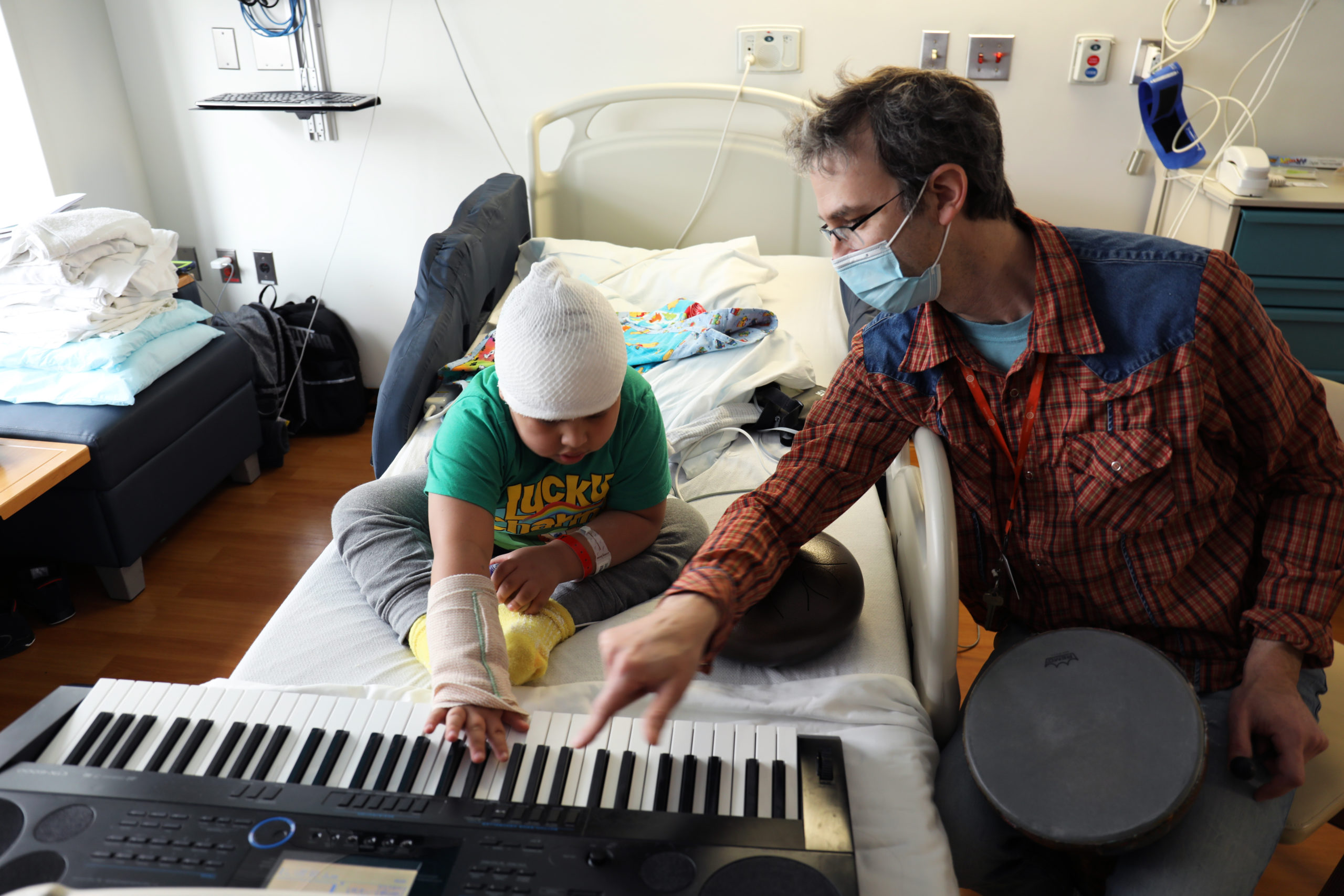When Snow City Arts teaching artist Lenny Zieben received his 2020 Katie Kurcz Memorial Fund Award, he knew he wanted to use it to dig deeper into music technology so that he could learn more—and, in turn, help his students access unique and exciting new ways of making digital music.
Created in honor and celebration of the life of Snow City Arts Auxiliary Board founding member Katie Kurcz, the Kurcz Memorial Fund allows teaching artists like Lenny to venture outside the hospital environment and across disciplines to pursue professional development or collaborative projects with other artists. In doing so, they enhance their own practice and impact their work in the hospital setting.
With his funding, Lenny purchased a Novation sampler and sequencer, which opened up possibilities for adding layers, effects, and samples to students’ electronic music. He also delved deeper into the capabilities of apps he was already familiar with, like Koala and Garageband, exploring how to further enhance students’ work.

Lenny and one of his students explore a combination of traditional and digital musical instruments.
“The Kurcz fund allowed me to dive deeper into the world of electronic music and pass that on to the students,” says Lenny. “While this is something that has always interested me and been a part of my work, it was the Kurcz fund that gave me the time outside of Snow City Arts to research other points of view and approaches to teaching this material.”
Lenny began using his new devices, along with existing apps, to jam with students: “I would play the bass sequencer while a student would program drums and samples. We would sometimes listen to music that uses the same technique and approach to get ideas. In other scenarios, I would sample students’ voices and other sounds to integrate into compositions.”
Listen: “Visitors” by Jesus, age 14
Lenny found that these tools both captivated students and connected their art-making to their real-world experiences: “Students were really mesmerized by the sounds that these instruments made. It gave them a context from some of the artists they listen to,” he says. He also discovered that they served as an unexpected learning support for reluctant music-makers: “One tool that students responded positively to was the robot voice disguiser, or auto-tune. Many students do not feel comfortable using their natural voice, but did feel comfortable using a filter that hid its natural sound.”
Listen: “Happy As A Clam” by Angel, age 14
Listen: “Open Road” by Nicholas, age 10
Lenny’s goal was to use technology to complement, not replace, his students’ relationship with musical expression and composition. “So much music technology has reached a point where a student’s personality and ideas are replaced with cutting and pasting another’s,” he says. “Maintaining the curious and unexpected decisions a young student makes is crucial to the process.”
To make sure students’ pieces reflected their own creative ideas and choices, Lenny helped them integrate electronically generated sounds (both familiar and bizarre) with fundamental rhythmic and harmonic ideas developed through familiar instruments like piano, ukulele, drum and voice.
Listen: “Nathan’s Song” by Nathan, age 17
Through the Kurcz Fund, Lenny deepened his own knowledge of electronic music—but some of his most profound learning came from seeing how quickly students picked up the technology and experimented without hindrance or inhibition. “With the … sequencers, students could generate rhythmic and melodic ideas without the possible frustration of instrument technique,” he says. “Kids like to experiment with unique tools, and a lot of times, the results can be creatively mind-blowing.”
A live performance of “A Lone Wolf” by 15-year-old Hector, which Lenny arranged for a four-piece band. Hector’s piece was performed as part of the 21st annual Pediatric Hematology / Oncology Thanksgiving Festival Concert held by the University of Illinois Cancer Center in November 2022.




Leave A Comment